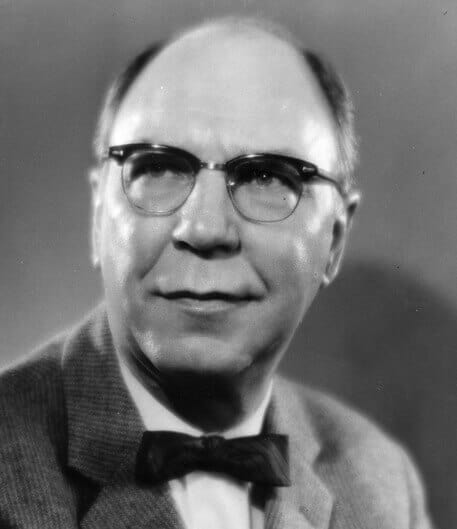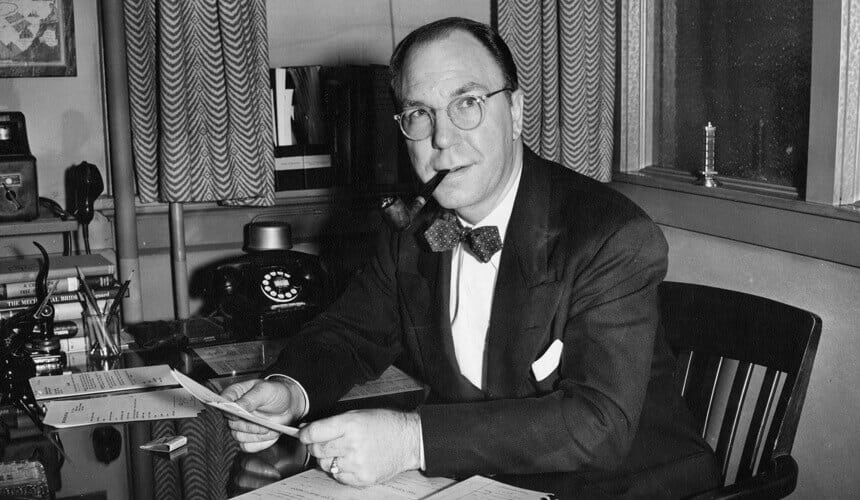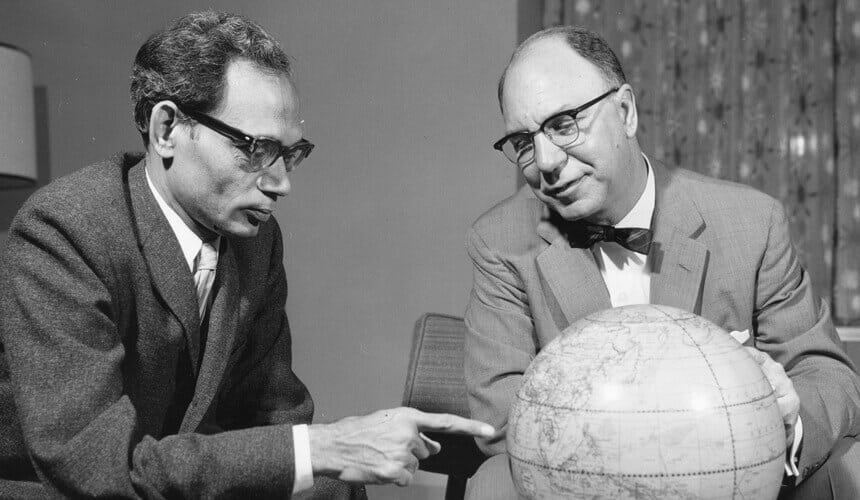Charles Wedemeyer
Distance-Learning Visionary
The notion that students must sit in a physical classroom to gain new knowledge seems quaint in the days of high-speed Wi-Fi connections and the steady flow of information that pops up on cell-phone screens.
Remarkably, in the 1960s — long before personal computers populated homes and offices across the globe — Charles Wedemeyer BS 1933, MA 1934 saw the constraints of that age-old formula for education. He envisioned a world in which teachers use technology to teach in far different ways and learners would have astonishing autonomy.
As the director of correspondence education at the UW, Wedemeyer seemingly had a crystal ball. “The extension student of the future … will learn at home, at the office, on the job, in the factory, store, or salesroom, or on the farm,” he said.

Image courtesy of UW Archives, #S01151.
Wedemeyer is considered the father of distance education, which today allows students to live full, uninterrupted lives — working, raising families, pursuing leisure activities, and more — yet learn a new skill or earn a college degree. Michael Moore PhD1976, a professor of education at Penn State, described Wedemeyer as “an ardent activist for freedom to learn.”
From The Park
The extension student of the future will probably not ‘attend’ classes; rather … learning will come to him.
“I think the first important requisite in the field of education is a deep and abiding love and understanding of the need to learn,” Wedemeyer said. The wall of any office that Wedemeyer occupied, Moore recalled, had a picture of a peasant boy looking through the schoolroom door at the privileged children inside. No one, Wedemeyer believed, should have to come to education through the back door when others enter through the front.
Wedemeyer began opening the front door to all by teaching the world’s first distance education course. Although he heavily influenced the creation of the United Kingdom’s Open University and access to education for nontraditional students in countries ranging from India to Israel to Australia, some traditional academics were skeptical of his groundbreaking ideas, questioning whether students would truly embrace them.
But like a true pioneer, Wedemeyer was undeterred. “Just break the ground,” he said. “Others will come behind and do the tidying up.”
 49° F
49° F
